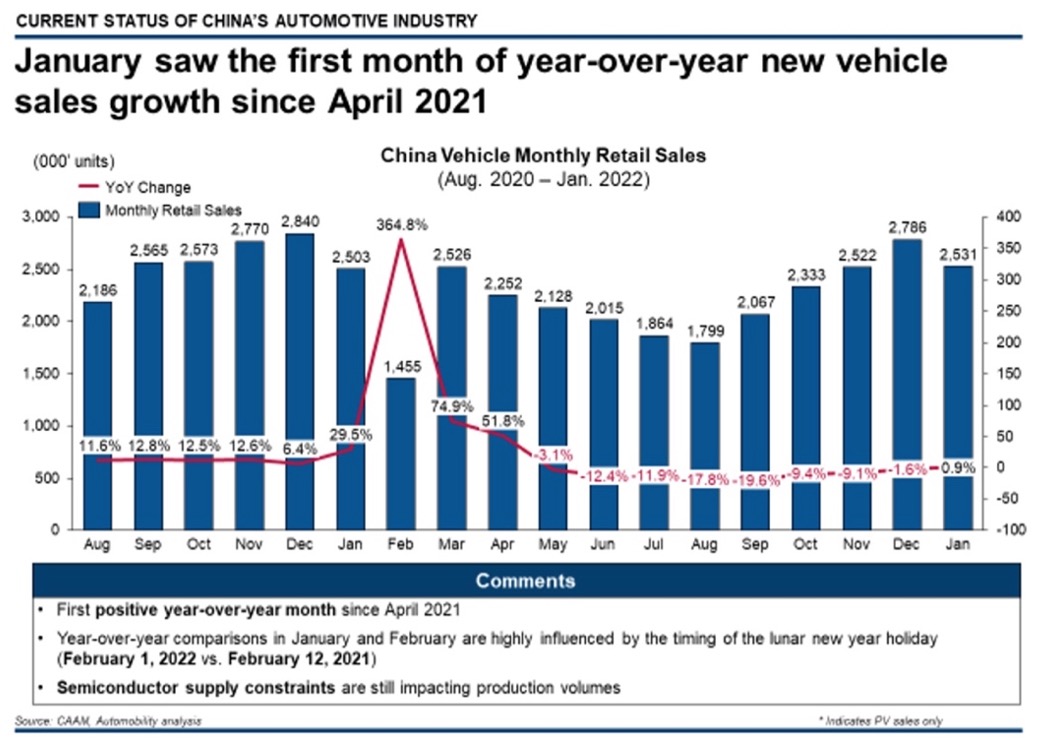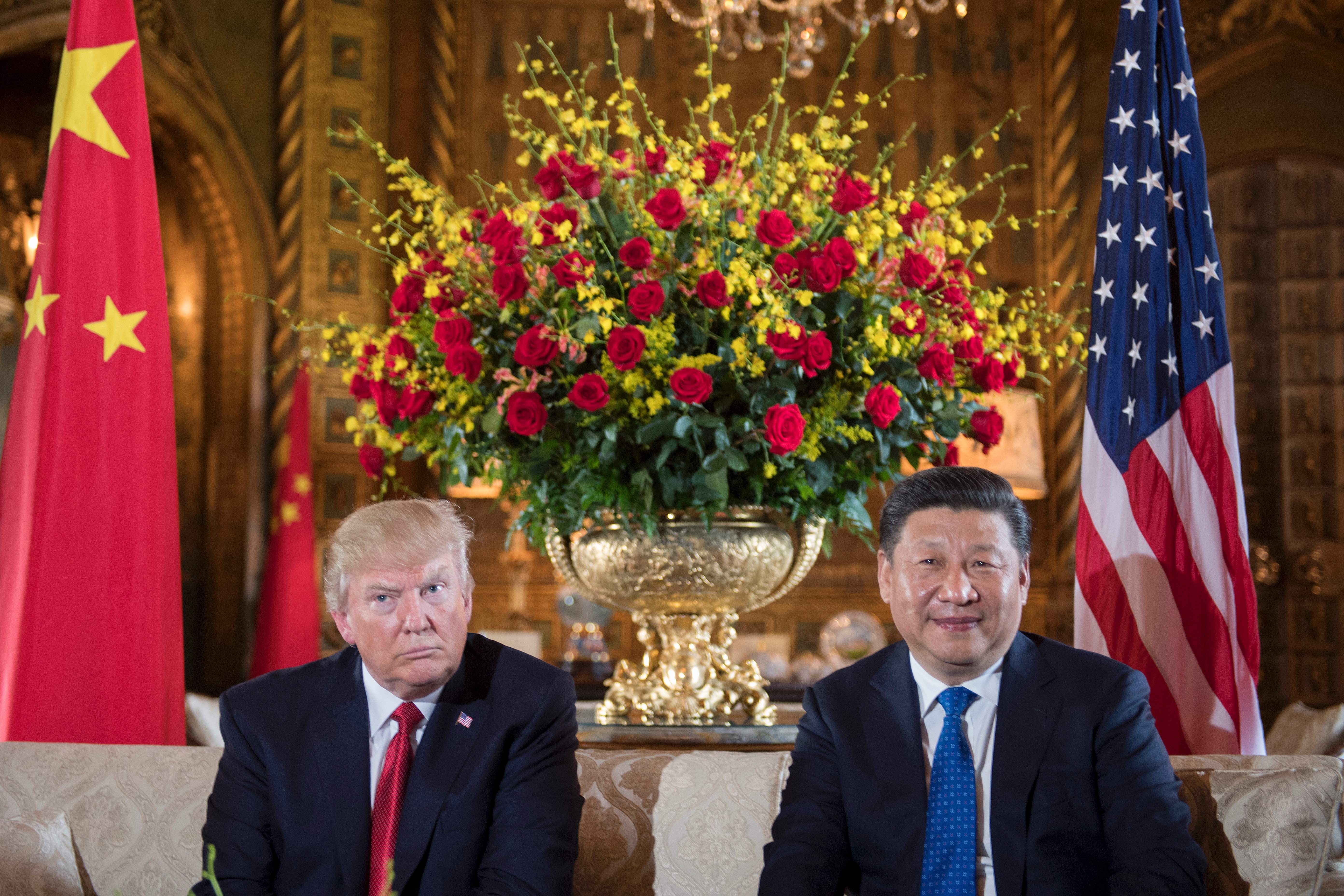China's Auto Market: Why BMW, Porsche, And Others Face Headwinds

Table of Contents
The Rise of Domestic Chinese Brands
The most significant challenge facing international automakers in China is the rapid ascent of domestic brands. These companies are no longer simply playing catch-up; they are aggressively competing for market share and winning.
Increased Competition and Market Share
Domestic brands like BYD, Nio, and Xpeng are rapidly gaining ground, leveraging several key advantages:
- Aggressive marketing campaigns targeting younger generations: These brands are masters of digital marketing, using social media and influencer collaborations to build brand loyalty amongst younger, tech-savvy consumers. This contrasts with the more traditional marketing approaches of many international brands.
- Rapid innovation in electric vehicle (EV) technology: Chinese EV manufacturers are leading the charge in battery technology, charging infrastructure, and autonomous driving features, often surpassing their international counterparts in certain areas. This is crucial in a market increasingly focused on sustainable transportation.
- Government support and subsidies favoring domestic brands: The Chinese government actively supports the growth of its domestic auto industry through subsidies, tax breaks, and favorable regulations, creating a significant competitive advantage. This policy directly impacts the pricing and profitability of both domestic and foreign vehicles within China's auto market.
Technological Advancements
Chinese automakers are not just focusing on price; they're investing heavily in technology, rapidly closing the gap with established international players.
- Investment in R&D surpassing many international competitors: Many Chinese automakers are dedicating a larger percentage of their revenue to research and development than their foreign competitors, leading to rapid innovation in areas like AI, battery technology, and connected car services.
- Strategic partnerships with tech companies for software integration: Collaborations with leading Chinese tech firms provide access to cutting-edge software and AI capabilities, enhancing the in-car experience and creating a competitive edge in terms of features and user experience.
- Rapid adoption of new manufacturing processes: Chinese automakers are embracing advanced manufacturing techniques, including automation and robotics, leading to increased efficiency and lower production costs. This allows them to offer competitive pricing while maintaining quality.
Economic Slowdown and Shifting Consumer Preferences
Beyond the rise of domestic competition, macroeconomic factors and evolving consumer preferences are also contributing to the headwinds faced by international automakers in China's auto market.
Economic Uncertainty
China's economic growth has decelerated, leading to reduced consumer spending and impacting demand for luxury vehicles in particular.
- Decreased disposable income affecting purchasing power: Economic uncertainty has led to a decline in disposable income, making consumers more price-sensitive and less likely to purchase high-end vehicles.
- Concerns about future economic stability impacting investment decisions: Uncertainty about future economic prospects is impacting consumer confidence, leading to delayed purchasing decisions or a shift towards more affordable options.
- Shift in consumer priorities towards essential goods over luxury items: In times of economic uncertainty, consumers tend to prioritize essential goods and services over discretionary purchases like luxury vehicles.
Changing Consumer Demands
Chinese consumers are becoming more discerning, demanding advanced technology, personalized features, and superior value for their money.
- Preference for electric and hybrid vehicles: The demand for environmentally friendly vehicles is rapidly increasing, pushing automakers to prioritize electric and hybrid models.
- Demand for innovative digital features and connectivity: Chinese consumers expect advanced infotainment systems, seamless smartphone integration, and other cutting-edge digital features.
- Growing interest in customization options and personalized services: Consumers are increasingly seeking vehicles that reflect their individual tastes and preferences, demanding more customization options and personalized services.
Regulatory and Political Landscape
The regulatory and political environment in China also presents significant challenges for international automakers operating within China's auto market.
Government Regulations
Stringent regulations are increasing production costs and impacting profitability.
- Increasing pressure to localize production to meet regulatory requirements: Meeting local content requirements adds to production costs and complexity for international brands.
- Stricter environmental regulations impacting fuel efficiency standards: Meeting increasingly stringent emissions standards requires significant investment in technology and adaptation.
- Rising import tariffs and other trade barriers: Trade policies can significantly impact the cost of importing vehicles and parts into China.
Geopolitical Considerations
Geopolitical factors add another layer of complexity to operating in China's auto market.
- Trade disputes and tariffs impacting import costs: Trade tensions can lead to increased tariffs and other trade barriers, negatively impacting the profitability of imported vehicles.
- Concerns about data security and intellectual property protection: Concerns about data security and intellectual property rights create challenges for foreign companies operating in China.
- Political instability affecting investment confidence: Political uncertainty can impact investment decisions and create risks for international automakers.
Conclusion
China's auto market, once a guaranteed pathway to success for international brands like BMW and Porsche, is undergoing a fundamental transformation. The rise of competitive domestic brands, a slowing economy, evolving consumer preferences, and a complex regulatory and political landscape are creating significant headwinds. To thrive in this dynamic environment, international automakers must adapt, embrace technological innovation, understand evolving consumer demands, and navigate the political and economic complexities. Understanding the challenges facing China's auto market is crucial for any company aiming for success in this vital sector. Further research into specific market segments and competitive strategies is highly recommended for informed decision-making within China's rapidly evolving auto market.

Featured Posts
-
 Understanding The Controversial Changes To The Nhl Draft Lottery
May 16, 2025
Understanding The Controversial Changes To The Nhl Draft Lottery
May 16, 2025 -
 Xi Jinpings Team Negotiates Key Us Agreement
May 16, 2025
Xi Jinpings Team Negotiates Key Us Agreement
May 16, 2025 -
 Los Angeles Dodgers Offensive Struggles Cost Them Against Cubs
May 16, 2025
Los Angeles Dodgers Offensive Struggles Cost Them Against Cubs
May 16, 2025 -
 The King Of Davoss Reign Rise And Fall
May 16, 2025
The King Of Davoss Reign Rise And Fall
May 16, 2025 -
 Analyzing The Padres Cubs Matchup Who Will Win
May 16, 2025
Analyzing The Padres Cubs Matchup Who Will Win
May 16, 2025
Latest Posts
-
 Triumf Tampy Bey Pobeda Nad Floridoy V Pley Off N Kh L
May 16, 2025
Triumf Tampy Bey Pobeda Nad Floridoy V Pley Off N Kh L
May 16, 2025 -
 Pley Off N Kh L Karolina Oderzhala Razgromnuyu Pobedu Nad Vashingtonom
May 16, 2025
Pley Off N Kh L Karolina Oderzhala Razgromnuyu Pobedu Nad Vashingtonom
May 16, 2025 -
 Kucherov I Tampa Bey Oderzhivayut Pobedu Nad Floridoy V N Kh L
May 16, 2025
Kucherov I Tampa Bey Oderzhivayut Pobedu Nad Floridoy V N Kh L
May 16, 2025 -
 Pley Off N Kh L Tampa Bey Kucherova Obygryvaet Floridu
May 16, 2025
Pley Off N Kh L Tampa Bey Kucherova Obygryvaet Floridu
May 16, 2025 -
 Tampa Bey Vyigryvaet Seriyu U Floridy Kucherov I Put K Pobede
May 16, 2025
Tampa Bey Vyigryvaet Seriyu U Floridy Kucherov I Put K Pobede
May 16, 2025
